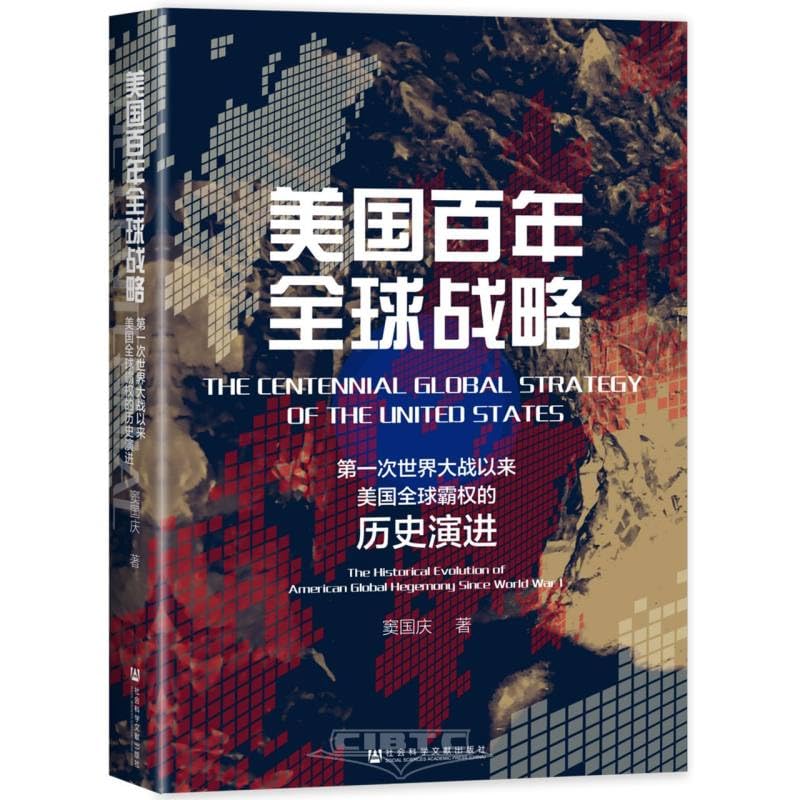Joseph S. Nye, Professor, Harvard University
Sep 06, 2024
As the US presidential election draws near, many are wondering what it will mean for American foreign policy. The answer is wrapped in uncertainty.

Dou Guoqing, Colonel of the People’s Liberation Army and Postdoctorate Researcher at PLA National Defense University
Jun 18, 2024
The United States has been the biggest beneficiary of changes in the international order over the past century. Four key factors have contributed to its current hegemony.

Yan Xuetong, Distinguished Professor, Tsinghua University
May 08, 2024
When discussing the global order and China's foreign policy, we must examine how China adapts its foreign policy to changes in the global order. There is a debate on whether we are returning to a Cold War-like situation. Many believe we are, drawing parallels between the current U.S.-China competition and the former U.S.-Soviet rivalry, which shaped the international power structure.
Warwick Powell, Adjunct Professor at Queensland University of Technology, Senior Fellow at Beijing Taihe Institute
Apr 25, 2024
The United States has intensified its efforts to assert or reclaim American Primacy in Asia. Assert if one holds the view that it still holds military preponderance; reclaim if one believes that it doesn’t. Through a series of so-called mini-lateral arrangements, the US has in recent years sought to enlist its Asia Pacific client states, former colonies and subimperial allies to anchor a 21st Century bulwark on the western edge of America’s Lake. The Quad, AUKUS and now the trilateral involving Japan and the Philippines form part of a lattice-like network, in all practical intents and purposes, aimed squarely at the containment of China.

Li Yan, Director of President's Office, China Institutes of Contemporary International Relations
Jan 29, 2024
The complexity of relations between China and the United States and the polarization of U.S. domestic politics are expected to persist for the foreseeable future. In an election year, the danger is significant. The U.S. political ecosystem has the potential to send shockwaves through bilateral relations.
Chen Jimin, Guest Researcher, Center for Peace and Development Studies, China Association for International Friendly Contact
Oct 03, 2023
Even though the United States acknowledges that the world is undergoing significant changes, it has failed to grasp the nature of the transformation. This is lamentable, not a positive development for the global community.
Joseph S. Nye, Professor, Harvard University
Sep 08, 2023
The first debate between the Republican Party’s candidates for next year’s US presidential election revealed major schisms over foreign policy. While former US Vice President Mike Pence and former US Ambassador to the United Nations Nikki Haley defended America’s support for Ukraine in Russia’s war of aggression, Florida Governor Ron DeSantis and businessman Vivek Ramaswamy expressed skepticism. Former President Donald Trump – the unquestioned front-runner – skipped the event, but he, too, has objected to US involvement in that conflict.
Zhou Xiaoming, Former Deputy Permanent Representative of China’s Mission to the UN Office in Geneva
Feb 07, 2023
America shamelessly uses other countries to further its own agenda, disregarding their needs. It has split the world and kept it in a state of perennial conflict since World War II and is now invoking the nightmarish return of the Cold War.

Yi Fan, a Beijing-based political commentator
Jan 31, 2023
To glimpse how China is perceived in the West, a good place to start would be the titles of bestsellers. In 2015, the No. 1 bestseller in the United States was The Hundred-year Marathon: China’s Secret Strategy to Replace America as the Global Superpower. In 2017, there was Destined for War: Can America and China Escape Thucydides’s Trap? And this year, a trending one is Red-handed: How American Elites Get Rich Helping China Win.
Chen Jimin, Guest Researcher, Center for Peace and Development Studies, China Association for International Friendly Contact
Jan 19, 2023
At the North American Leaders’ Summit in Mexico City in early January, the unmistakable undercurrent was U.S. competition with China. Clearly, China should increase its political support for Latin American countries in their efforts to gain equal footing with the United States.